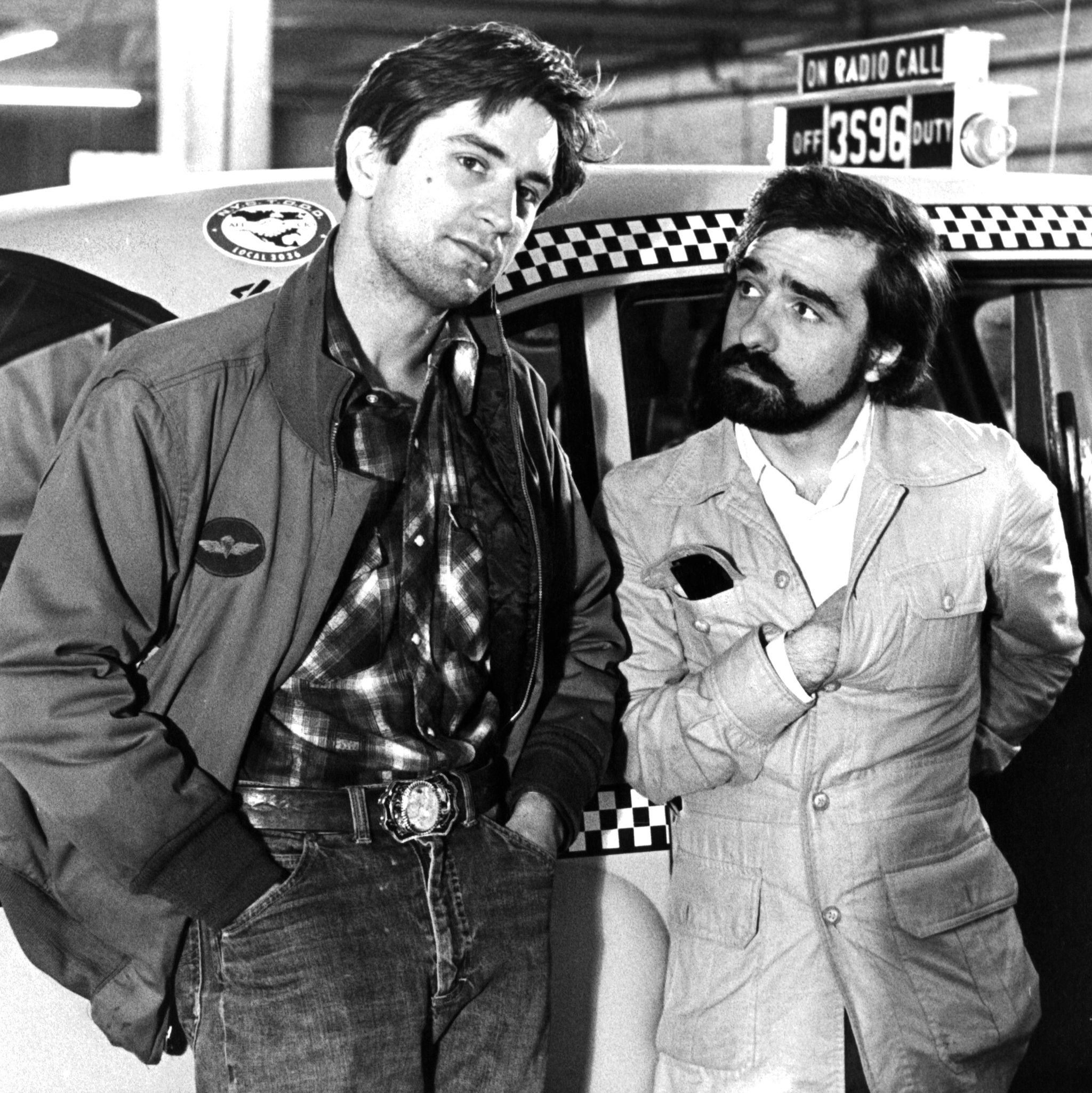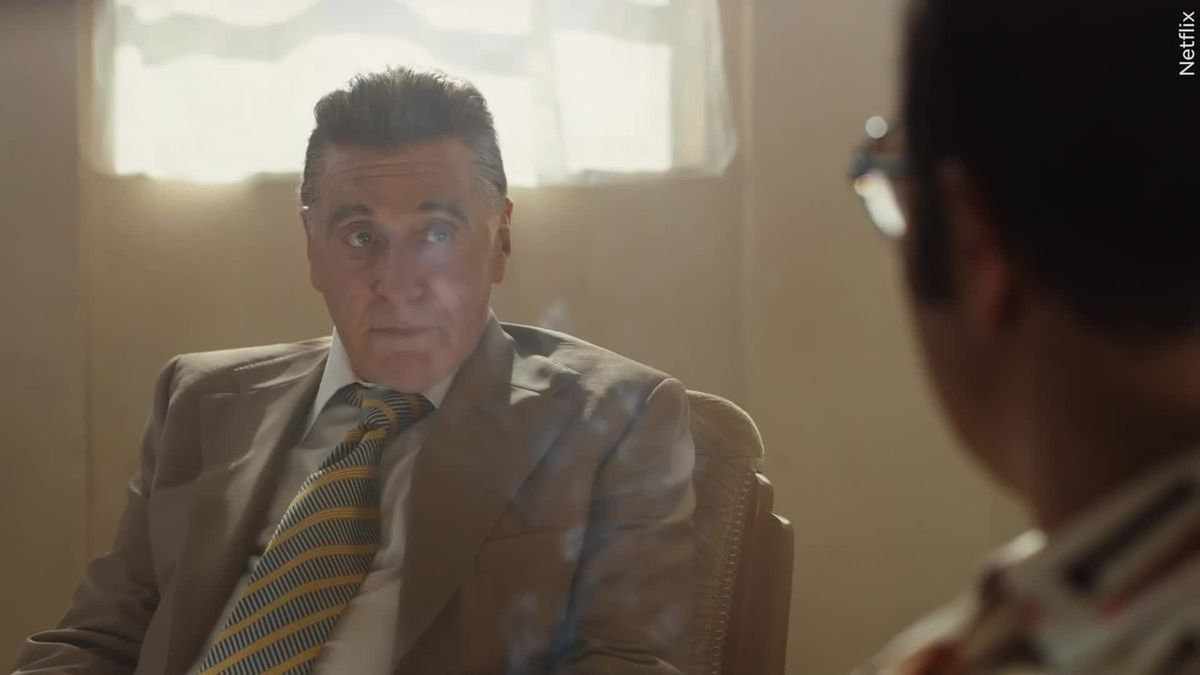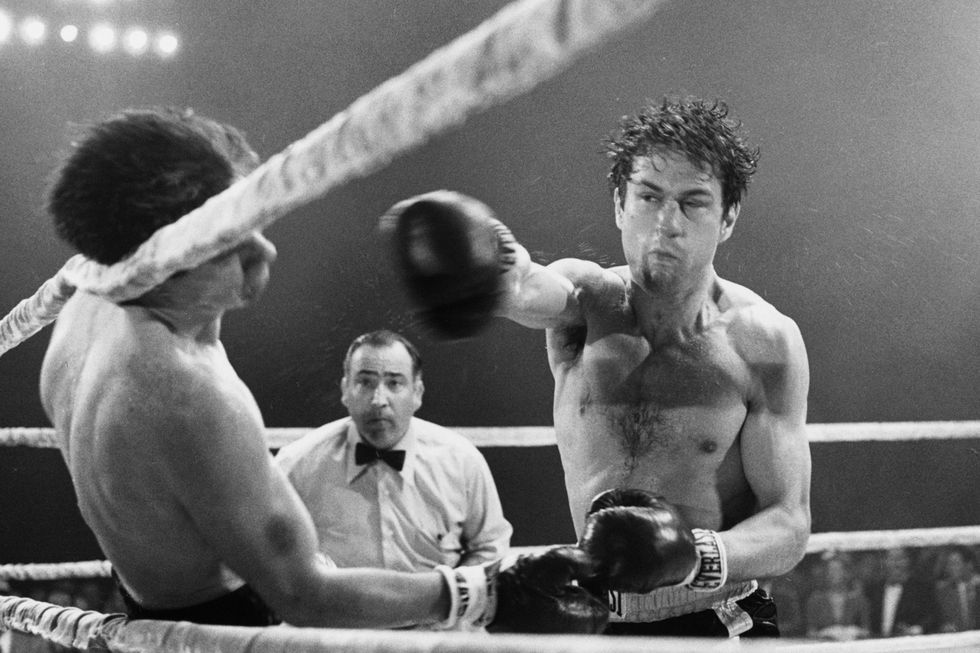If you're putting together a rundown of the great creative partnerships of the last century, who's going in? Lennon and McCartney? Check. Fred and Ginger? Bingo. Nile Rodgers and Bernard Edwards? Nailed on.
Martin Scorsese and Robert De Niro can't be far off the top of that list. Their relationship isn't just that of a director and an actor: they polish scripts together, they get projects greenlit together, and they put the thing on the screen together. But there's something deeper there too.
"De Niro is the only one who knows where I come from," Scorsese told Esquire in October. "He was 16 years old. So was I. He was on Kenmare Street [in New York]. I was on Elizabeth. He knows the people I grew up around. He knows the way of life. He knows a gesture. He knows the look in the eye. He knows it."
With the release of The Irishman, they've now worked on 10 films with Scorsese behind the camera and De Niro in front of it. But which is objectively and categorically the best? We've sorted it out for you.
And just while we're here, a moment of silence please for Scorsese's turn as a pufferfish with gigantic eyebrows in Shark Tale. No, Shark Tale does not count.
10. The Audition (2015)
This is a very strange little film. It's 16 minutes long, it stars De Niro alongside Leo DiCaprio and Brad Pitt, was written by Terence Winter of The Sopranos and The Wolf of Wall Street, and it somehow cost $70 million. Commissioned to mark the opening of casinos in Macau and Manila, the plot follows DiCaprio and De Niro as they pitch themselves for Scorsese's new film. This is still the only collaboration between DiCaprio, De Niro and Scorsese, and that they wasted it on this tosh is criminal.
Scorsese's had it up to here with his two muses, you see. But then, who should he spot? Only bloody Brad Pitt! Pitt gets the part, De Niro and DiCaprio slope off into the night and everyone goes home extremely well remunerated. Pitt, De Niro and DiCaprio reportedly snaffled $13 million apiece for a couple of days' shooting in New York. Bizarre.
9. New York, New York (1977)
While you've probably not seen this musical romance, you can very probably whistle the biggest hit from its soundtrack. Liza Minnelli's version of 'New York, New York' didn't take, but Frank Sinatra's 1980 cover certainly did, and became the aural calling card for the city's glitzy side.
If you want to know what Scorsese likes about his hometown, though, this is a good place to start. Coming after Taxi Driver, it feels like a counterpoint to the grim city Travis Bickle inhabits. In the afterglow of victory in World War Two, De Niro's saxophonist Jimmy Doyle pursues Minnelli's singer Francine Evans. Despite her frostiness, they end up working together, then sleeping together, then romantically entangled, then estranged. It's not been reappraised in the same way as The King of Comedy has, hanging together a little too uneasily to be a satisfying pastiche of the big MGM musicals of the 1940s. But as with anything De Niro-Scorsese, it's still worth your time.
8. Cape Fear (1991)
One of De Niro's most unsettling roles with Scorsese is that of Max Cady, the convicted rapist who leaves prison bent on exacting revenge on the lawyer who, he's convinced, sat on evidence which could have lessened his sentence. He's terrifying and relentless, but he's straightforwardly monstrous in a way that comparably unbalanced characters like Bickle and Jake LaMotta aren't. Which is perhaps why it's not endured in the same way as Taxi Driver and Raging Bull.
But Cape Fear is still a superior thriller, and its glossiness shouldn't mean it's looked down upon compared to the auteur-ish end of Scorsese's work. It also gave us The Simpsons' parody 'Cape Feare', in which Sideshow Bob follows the family when they're uprooted to Terror Lake and spends a good chunk of the episode standing on rakes. For that alone, it's to be admired.
7. Casino (1995)
The De Niro-Pesci-Scorsese axis reunited for a third outing, returning to crime drama again but subtly tweaking the elements at play. Pesci and De Niro play childhood friends Nicky Santoro, a mob heavy, and Sam Rothstein, who run a Teamsters Union-owned casino together in Las Vegas. Sam looks after the day to day, Nicky is the iron fist in the velvet glove. But then Nicky's fiery temper sets the pair on a collision course with the gaming commission and the FBI. Meanwhile Sam's marriage to Ginger McKenna (Sharon Stone), a hustler and dancer, is all over the shop.
Arriving on the heels after Goodfellas, Casino was always going to stand in its predecessor's shadow. But it has an entirely different flavour in its treatment of unlimited power and success, and its startling opening, in which Sam's car explodes and he spins through a hallucinatory landscape of flashing neon and flames, is one of Scorsese's most powerful and unexpected sequences.
6. The Irishman (2019)
This wintry, reflective saga functions as a coda to all the films De Niro and Scorsese made together. Most obviously there's Goodfellas, of course, with Joe Pesci returning for one last, unsettling glare as mafiosa Russell Bufalino. But the destructive paths of Travis Bickle, Johnny Boy, Rupert Pupkin et al come to rest in the same ruminative way as De Niro's Frank Sheeran. All alone in his retirement home, unable to forgive himself for a lifetime spent killing people for money, Sheeran is the most melancholy of the characters De Niro has played for Scorsese. Fortunately, The Irishman's also very, very funny at points, and Al Pacino's cantankerous Jimmy Hoffa is a delight.
5. Mean Streets (1973)
Scorsese and De Niro's first feature length collaboration laid out the themes they'd return to again and again over the next 50 years: the friendships and bonds between violent men; senses of duty and guilt bound up in Catholicism; what New York can do to people; and the parallel morality of life lived either side of the law.
Mean Streets was put together for only $500,000 and it's raw, original, and essential if you want to get to the bottom of what's always motivated De Niro and Scorsese. It's the New York of their youth, a hard-edged and cutthroat city, in which Harvey Keitel's Charlie is trying to look out for his wayward and debt-laden pal Johnny Boy (De Niro). Johnny Boy won't be told, though, and De Niro's performance carries echoes of the characters who were to come. It's a remarkably fully-formed film, and one which basically invented most of the serious-minded TV crime dramas that followed it. If you need any more convincing, James Gandolfini once said that as a young man he watched Mean Streets 10 times in a row at the cinema.
4. The King of Comedy (1983)
Given that Joker basically wouldn't exist without it, The King of Comedy is finally getting its due as the equal of Taxi Driver. Well, we've ranked it two places below Taxi Driver, but we're really talking hair's breadth stuff here. The King of Comedy flopped badly at the box office, making back only $2.5 million of its $19 million budget, but the intensity of De Niro's performance as jilted stand-up Rupert Pupkin – along with its prescient dissection of celebrity and obsession – have burnished its reputation since.
Feeling burnt out after Raging Bull, Scorsese looked to silent cinema for visual cues – see the static cameras and lack of close-ups – and De Niro was similarly inspired to try new techniques. As part of his prep he tracked down one of his own stalkers, to try to find out what he wanted – the answer, he found, was: "To have dinner with you, have a drink, chat. My mom asked me to say hi."
The title is ironic on a number of levels. For one, the delusional Pupkin isn't much of a comedian, and he's obsessed with the much more successful late night host Jerry Langford to the point of hatching a plot to kidnap him. For another, it's an intensely bleak and uncomfortable watch, but as a portrait of an unravelling mind it's compelling.
3. Goodfellas (1990)
The rise and fall of Henry Hill as he clambers through the mob's ranks is so richly textured and stylishly handled that it seems to exist almost outside of Scorsese's oeuvre. But its timing makes it all the more remarkable. It had been seven years since his last work with De Niro in The King of Comedy, and Scorsese had wandered into both the broad mainstream with The Colour of Money, starring Paul Newman and Tom Cruise, and the intensely personal with The Last Temptation of Christ. Neither had been an unqualified success. A return to De Niro and Pesci, and a combination of the character studies of Raging Bull and Taxi Driver with the vast scope of his Jesus biopic, wasn't exactly the obvious next move.
De Niro had had a mixed time since The King of Comedy too, dabbling in romantic roles (Falling in Love), buddy cop comedy (Midnight Run) and outright stinkers (We're No Angels) among crime tentpoles Once Upon A Time In America and The Untouchables. Goodfellas returned the him and Scorsese to the top of the pile. Quite how Dances With Wolves beat it to Best Picture and Best Director at the 1991 Oscars is an enduring mystery.
2. Taxi Driver (1976)
While Taxi Driver's place in the pantheon isn't really up for debate, its legacy is a little troubled. Films inspired by Travis Bickle's magnetic menace, but made without Scorsese's skill and Paul Schrader's script, tended to turn out as crass venerations of ultraviolent white men with grudges against the world. That's not Taxi Driver's problem, though, and its nihilistic worldview and oppressive atmosphere is rather the point. It's a raw, lean, shocking film even now, and Scorsese's scuzzy New York, full of spurts of steam and vivid red lights, is as malevolent as Bickle himself.
He's an embittered 26-year-old ex-Marine and insomniac exiled from normal life while driving taxis on the night shift and exposed to the city's underbelly. He gets lonelier and lonelier, and winds himself up tighter and tighter, numb but furious. Soon he's planning to murder a presidential candidate and the pimp of an underage prostitute. Obviously you know this already, but it's worth saying again: De Niro is extraordinary. As the New Yorker review put it then, he's "horrifyingly funny, and then just horrifying". Forty-three years on, it's not lost its edge.
1. Raging Bull (1980)
The story of boxer Jake LaMotta is not a cheery one, which is probably not entirely unconnected from the fact Scorsese was, at De Niro's behest, trying to kick cocaine at the time. So he launched himself into this brutal and uncompromising biopic. It follows De Niro's LaMotta as he fights his way to the middleweight summit, only to destroy himself and his relationships (including with his brother, played by Joe Pesci in his breakout role) because of his jealousy, his enormous appetite and his rage. Scorsese expected it to be his last major film, and poured himself into the minutiae of the editing and cutting process.
The starkness of the black and white images – a decision Scorsese made after Michael Powell, one of his directorial heroes, pointed out LaMotta's boxing gloves were the wrong colour for the time – and De Niro's explosive yet vulnerable performance (which won him his second Oscar) contrast with the almost dreamlike sequences in the ring, in particular the pummelling he takes from Sugar Ray Robinson. Raging Bull got mixed notices at the time and didn't make a huge dent in the box office. In fact, Scorsese thought it might scupper future films. But its stock couldn't have risen higher since. The director has never been a sports fan, but he eventually came to identify with LaMotta. "You make movies," he once said, "you're in the ring each time."
Like this article? Sign up to our newsletter to get more delivered straight to your inbox














